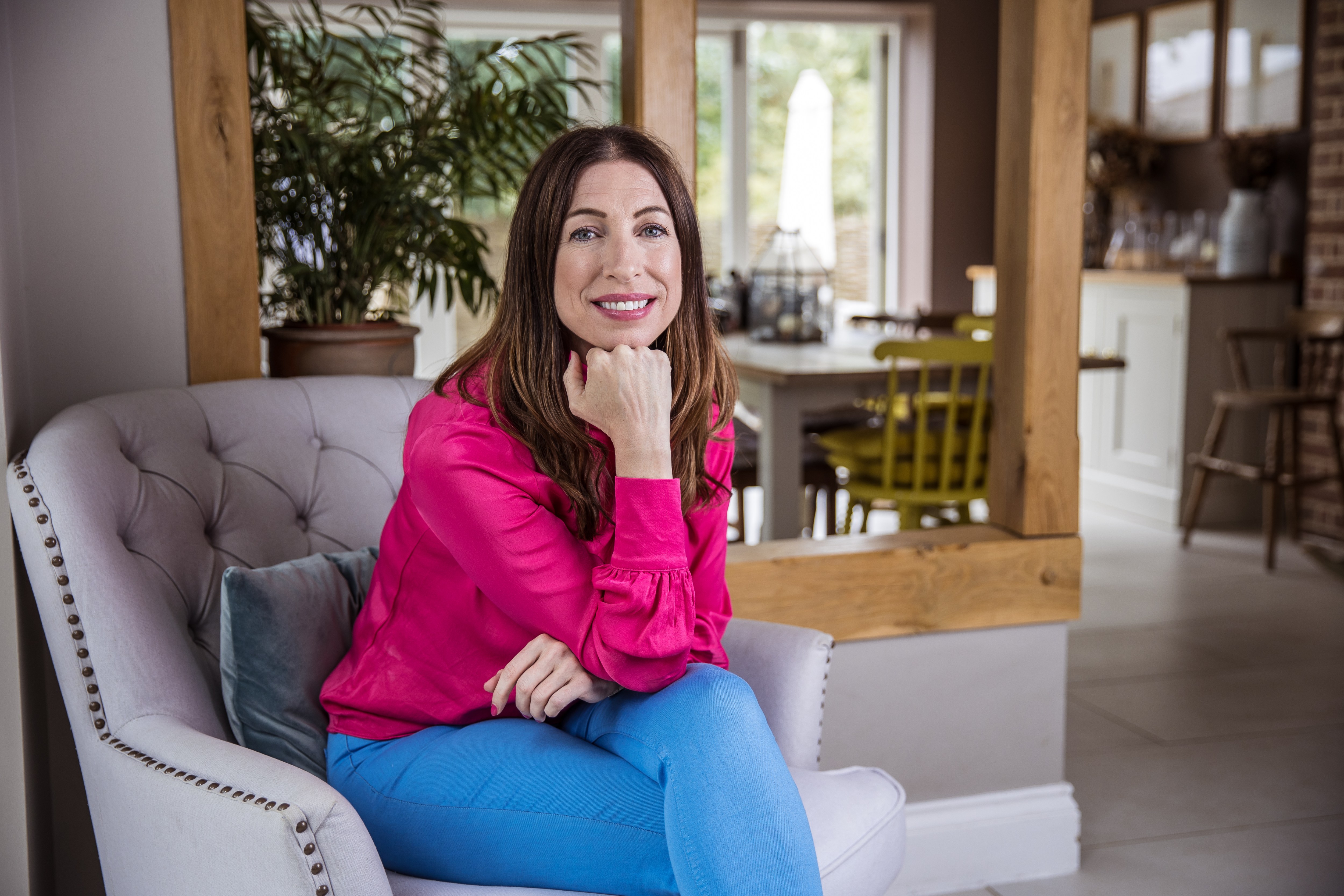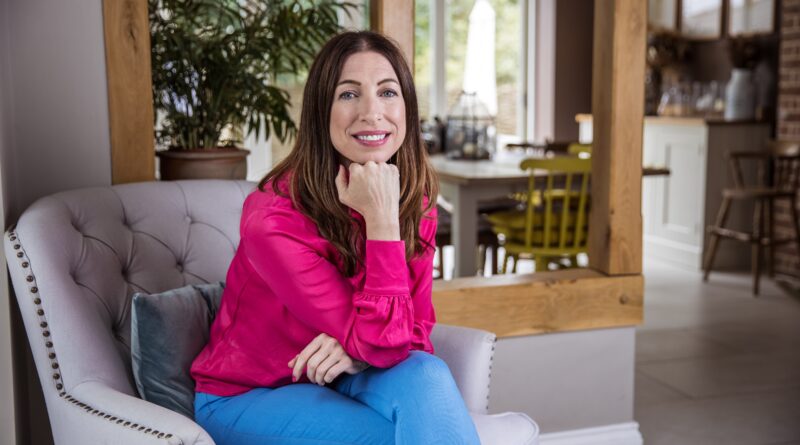Teenage girls: Six ways to help your troubled daughter
BAccording to an international survey of children between the ages of 10 and 15, ritish youth are the unhappiest in Europe. A quarter of 15-year-olds in the UK report that they are not satisfied with life, reports the Children’s Association, which commissioned the survey. “Young people in the UK are facing a decline in happiness, with 15-year-olds reporting the lowest life satisfaction on average in 27 European countries,” said Mark Russell, the charity’s chief executive.
Girls in particular are struggling – almost a third report being satisfied with their lives, compared to less than a fifth across Europe. British girls are also “less happy” with their lives, looks, families and school than their male peers. Their life satisfaction scores are falling, while boys’ are holding steady. The researchers also found that between 2015 and 2022, levels of happiness among 15-year-olds. girls in the UK are significantly less than the European average.
Why are girls in trouble and what can we as parents do to help?
Discuss difficult issues regularly
Dr. Beth Mosley, clinical psychologist and author of Happy Families: How to Protect and Support Your Child’s Mental Healthhe says that some parents see that their daughters are worried, and ignore it. “We go into distraction mode. We want to minimize it because we’re afraid that if we focus on it, we’ll turn it into a bigger problem. Sometimes we don’t want to see these things because they’re so painful. ”
Think about what is going on at home because of something, such as money worries or marital problems. “I see this all the time,” says Mosley. “Thoughts stay in a young person’s head and grow. By having a conversation, you can help reduce their tendency to panic and reach the wrong conclusion. Often, if the parents have problems, the children blame themselves.”
Their unhappiness may affect their home life, but regardless, to help them we need to be aware and willing to participate, Mosley says. “Young people say to me, ‘We don’t think that the adults in our lives are not as familiar with these issues as we are.’ Have the confidence to talk to your children about these issues, in a way that makes them not feel attacked. We are often [only] Have these conversations when something goes wrong – the worst time.”
• UK youth face ‘happiness recession’
Avoid perfectionism: teach them that it is good to fail
Help your children not feel pressured to work. Mosley says: “I also see many girls struggling to communicate their needs and desires to do well in school. “This goes back to pressure and expectation.” Move them away from the need to be perfect in all areas. “I work with 15-year-old girls who are afraid to make pasta,” she says. “They’re not afraid they’re going to burn themselves out – they’re afraid they’re going to do something other people don’t like.
“As parents, we are so busy with performance and results, we can add to these worries. Give your children more room for error. Say, ‘Okay, next time you won’t burn the pasta! It’s okay to get a B instead of an A — you’ve decided you’re not going to put yourself in such a position to prepare for an exam that you can’t eat or sleep.’”
Support teenage girls in the community
“Social groups are very important in the teenage years, and I think they’re complicated by digital technology,” says Mosley. It is good for the well-being of all young people, he adds, to have one or two close friends, and to spend time together in person, “but these are things that girls do less”.

Dr. Beth Mosley: “What I see in my clinic is that girls feel under a lot of pressure about their bodies and their appearance”
NATALIE MARTINEZ TIME
“Girls tend to be more concerned with social issues,” says Mosley. The challenge we have is that girls’ health is very much related to their social world and the dynamics that take place in that social context. I see young people who are in my youth getting involved in relationships that are really dangerous because they don’t value honesty, they value reputation.”
Never ignore friendship issues. “Open up where your child will tell you, ‘I’m having a fight with my best friend again,’ and then say, ‘Okay, tell me more—what happened?'” says Mosley. make them feel that there is something wrong with them to feel that way. “No, ‘Here I am again, you keep arguing with so-and-so’.”
Try to help them build real relationships. “Build with your child an understanding of the important things that are important to him in terms of friendship.” When her teenage daughter had a problem, Mosley recalls, “I couldn’t tell her, ‘I don’t like those friends,’ but I could be in the back, I I support him, I help him understand why those relationships ended up falling apart. at home, and guiding him to find other friends or to do activities where he would meet other young people who might have a more positive impact on his sense of self-worth. ”
Help them feel worthy
It’s tempting to control every risk, trying to calm their worries – but that doesn’t work. If we want to help our young people become more confident and capable, and therefore less anxious, we need to enable them to be independent, says Mosley. But it has to be the right kind of independence. He says: “We monitor the activities that our young people may be doing excessively. For example, shopping for you, or looking after your sibling, or visiting the tennis club alone – this builds confidence, if you provide the right guidance and scaffolding. In the meantime, he says, “we are keeping a low profile and we are not there for other things, such as helping them to know what is happening in their emotional world.
“Young people start to fear doing normal things because they spend a lot of time in their bedroom on the Internet. There is a big trend in TikTok at the moment, when young people say they are afraid to ask for food at a fast food restaurant, or to chat on the phone, or to meet their friends. ” He cites US research with highly anxious youth. “Researchers found that what reduced anxiety was not focusing on the thing they were worried about, but [encouraging] doing other things, like cooking dinner. Ultimately, it’s about giving your children more space to realize how much potential and potential they have. ”
• The NHS is launching a 24-hour mental health hotline
If you want help with your body image, don’t criticize your body
“What I see in my clinic is that girls feel under a lot of pressure about their bodies and their appearance,” says Mosley. “We know that girls are involved in a lot of online activities that involve comparing themselves to others.” How can parents help? Most of us know not to criticize or talk about our child’s weight and appearance. “But our eating habits and the way we talk about our bodies and our appearance have a big impact,” she says.
It’s complicated. Part of girls’ preoccupation with appearance is wanting to be accepted and valued. “If we focus on building the inner qualities of our children, such as their personality, friendship and social involvement, they will not criticize their outer appearance.”
Self-harm is on the rise. Manage your fear if it happens
“Self-injury is a way of transferring stress onto something in the body, and we’ve seen an increase in self-injurious behavior, especially among girls,” says Mosley. If young people are struggling, they often go online to seek help first, he says. On the Internet, or in their peer group, they will be told about harming themselves, and they may try to do so.”
At that time, it can reduce stress. “If you’re in emotional pain and you hurt yourself physically, your body produces more endorphins, and that actually relieves not only the physical pain but also the emotional pain. They may turn to that as a way to cope with future adversity.” But after their first release, they feel guilt and shame, Mosley notes, which exacerbates those concerns.
Some parents get angry because it’s too scary. Mosley says: “It’s important for parents not to panic if their child is upset or unhappy, because that gives them the message that it’s out of control.” Control your emotional response. You can only help if you understand what is going on for them. So start the conversation, and listen – just like Mosley does with his channel. “I learned to bite my lip and let my daughter talk.”
He adds: “Often, young people discuss mental health in their group discussions, in their bedrooms, while we are cooking dinner.” Young people’s mental health advice isn’t always good, he says. But as I know from the young people I see in my clinic, they don’t want to tell adults because they think the reaction will be extreme. They are afraid that we will exaggerate, judge them, and they will get into trouble, or we will panic and make things worse.”
How can we help our children to trust that they can have a conversation with us where our response will be measured and considerate? “You might try, ‘It seems like you’re doing a lot of things—what can I know?'” he suggests. You give them an invitation. And don’t be afraid to ask twice. If they genuinely want to know, they are more likely to tell you. “You may not have all the answers, but you can go, talk to someone you trust, and go back. You don’t have to solve the problem right away.” They need you to listen and understand.
#Teenage #girls #ways #troubled #daughter
